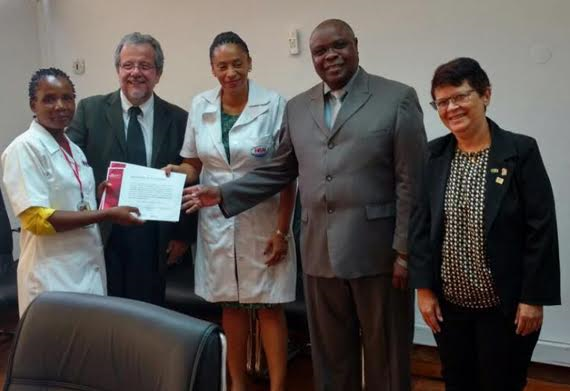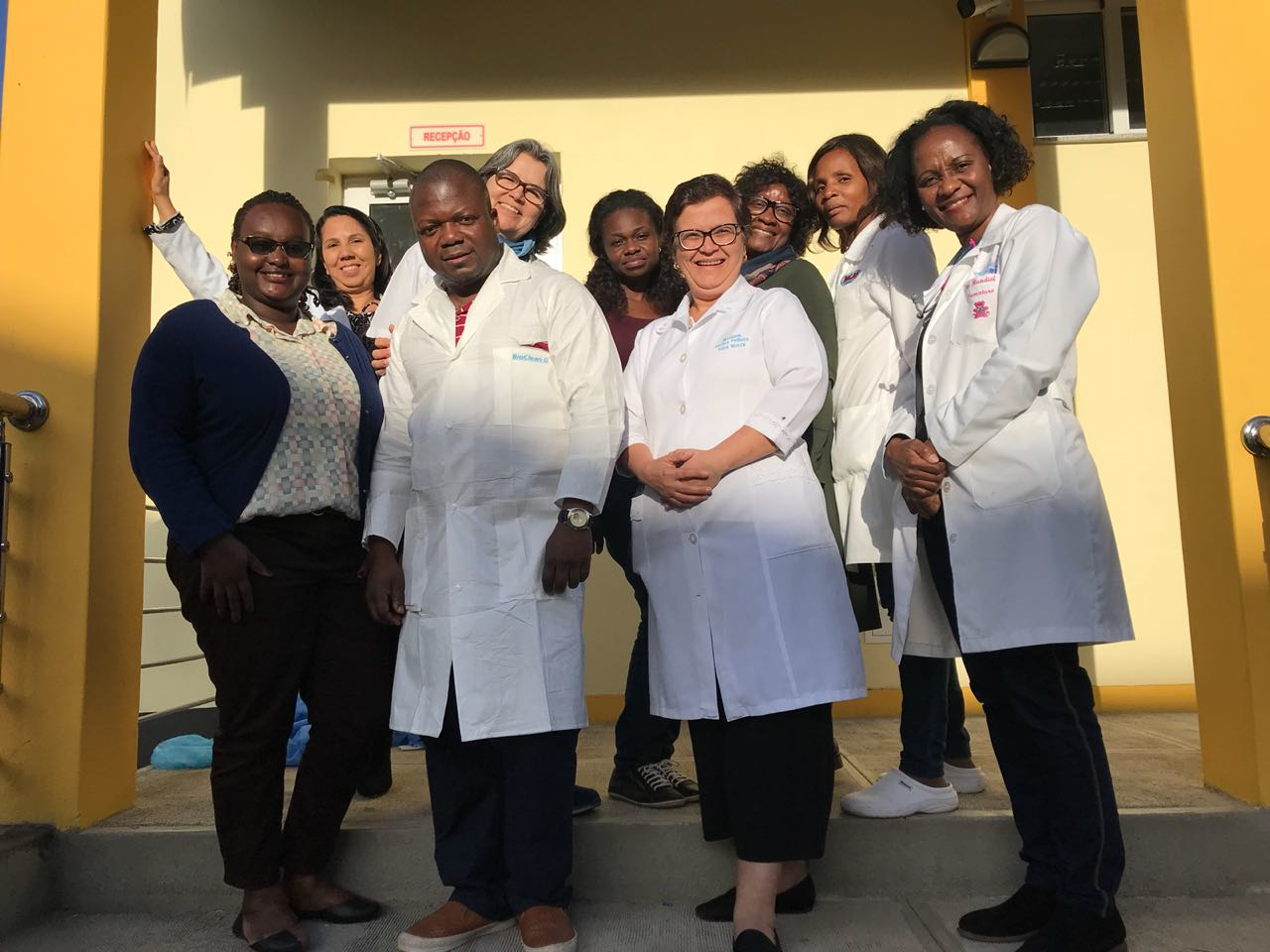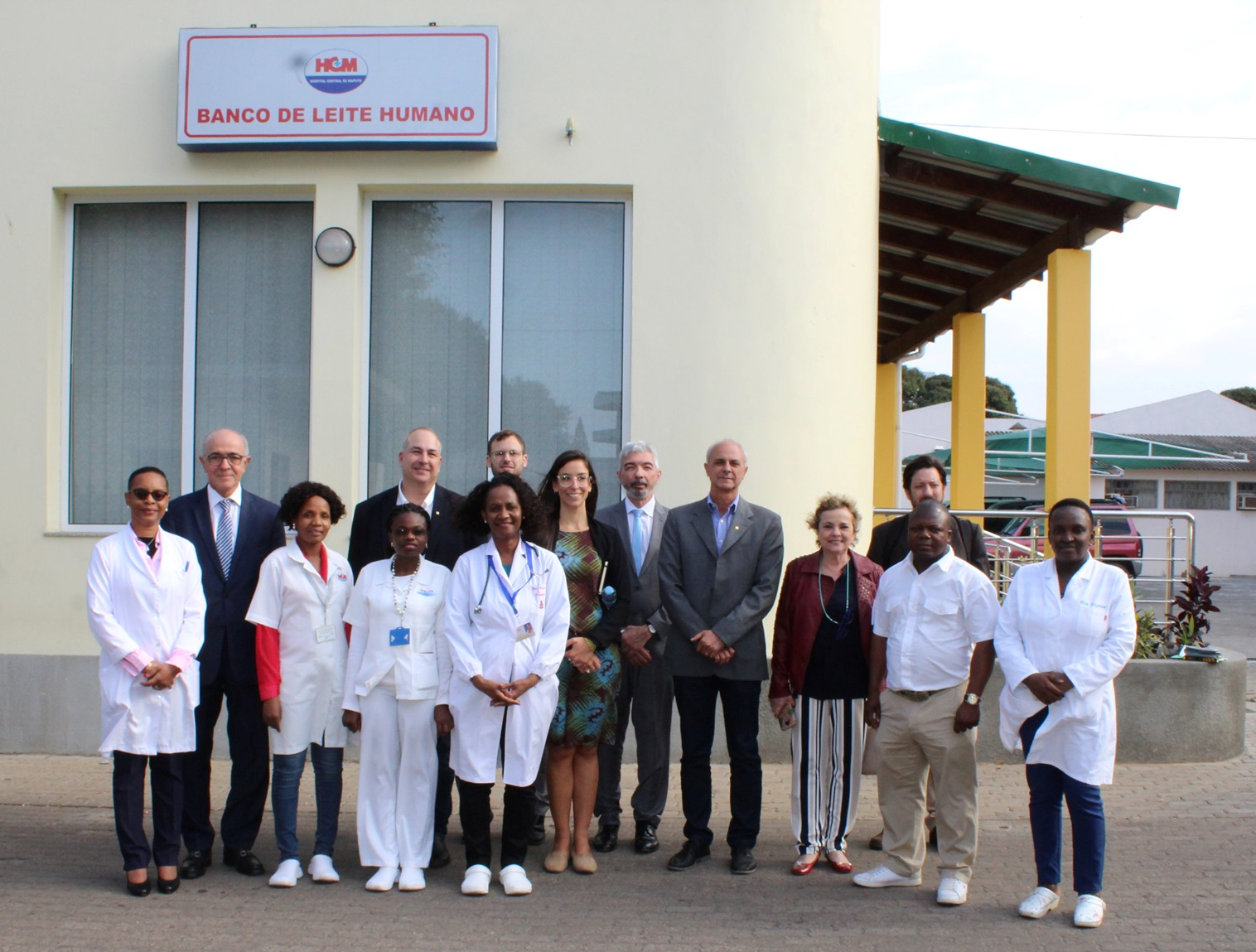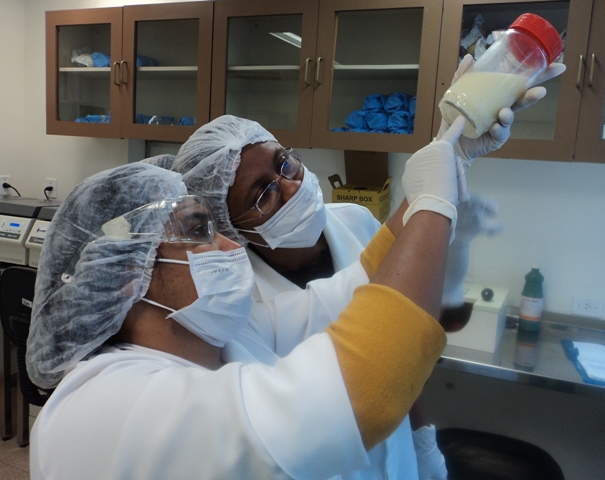 Global Network of Human Milk Banks
Sharing knowledge and technologies for the food and nutritional security of newborns and nursing mothers
Global Network of Human Milk Banks
Sharing knowledge and technologies for the food and nutritional security of newborns and nursing mothers

Challenges
According to United Nations Children’s Fund (UNICEF) estimates, despite progress made in recent decades in the global reduction of child mortality and neonatal mortality rates, about 5.2 million children under five died in 2019, with a mortality rate of 37.7 deaths per 1,000 live births. Sub-Saharan Africa continues to be the region with the highest under-five mortality rate in the world—76 deaths per 1,000 live births. In 2019, 1 in 13 children in sub-Saharan Africa died before reaching their fifth birthday, which is 15 times higher than the risk for children born in high-income countries and 20 years behind the world average. Disparities in child survival abound at the country level as well, where the risk of dying before age five for a child born in the highest-mortality country is about 70 times higher than in the lowest-mortality country and all five countries with mortality rates above 100 deaths per 1,000 live births are in sub-Saharan Africa.
Towards a Solution
Based on the Brazilian policy and practice of implementing human milk banks, initiated by the Ministry of Health and the Oswaldo Cruz Foundation (Fiocruz) in the 1980s, the Global Network of Human Milk Banks (rBLH) is an initiative that aims to expand the sharing of knowledge and technologies for the food and nutritional security of newborns and nursing mothers, having the right to health as a core value. Originally structured as a Brazilian network, the rBLH has expanded its scope with the integration of countries with which South-South cooperation activities were developed to transfer principles for the implementation of their own human milk banks (in particular, Angola, Cabo Verde and Mozambique). The rBLH was recognized by the World Health Organization (WHO) and the United Nations Development Programme (UNDP) as one of the initiatives that has most contributed to human development in the southern hemisphere by promoting practical solutions that are reproduced, expanded and adapted by other countries, following a South-South cooperation approach.
With the mission to support breastfeeding and to collect, process, evaluate, store and distribute human milk, human milk banks can be established with simple and inexpensive technology and in a relatively short time. In addition to their important contribution to increasing newborn-breastfeeding rates and improving neonatal health, the human milk banks generate evidence to improve health-related public policies. The Brazilian experience shows that human milk banks are an effective means to extend the survival of babies born with problems (especially premature babies) and to reduce neonatal mortality (as indicated by the drop in this rate by more than 75 percent between 1990 and 2019.
South-South cooperation for the implementation of a human milk bank involves professional capacity building, provision of specialized equipment and adaptation of physical facilities. Staff training includes courses, such as human milk processing and quality control and human milk bank management and information, and internships in the fields of assistance to breastfeeding women and communication and information, among others. Fiocruz and the Brazilian Cooperation Agency (ABC) jointly provide technical and financial support for the establishment of human milk banks in various parts of the world through the sharing of experiences, knowledge and technologies and the strengthening of local capacities, in accordance with the different socioeconomic and cultural contexts. This approach results in the development of legal frameworks and public policies that complement the technical and scientific dimension of the initiative—an essential aspect for the expansion and consolidation of the rBLH.
The establishment and reinforcement of human milk banks in African countries are essential for strengthening their national health systems. The first African human milk bank was installed in 2011 at the Agostinho Neto Hospital in Praia, Cabo Verde, and involved the training of 96 technical staff. In its first year of operation, the local team noted a 50 percent reduction in newborn deaths; between 2011 and 2016, 2,500 babies benefited from breast milk (thanks to the collaboration of 1,928 donors) and 17,499 women were assisted in breastfeeding. The second African human milk bank was implemented in 2018 at the Maputo Central Hospital, Mozambique, and a third one started operating in 2019 at the Lucrécia Paim Maternity Hospital in Luanda, Angola. Other Lusophone African countries and Timor-Leste are expected to also join the rBLH, as envisioned with the creation in October 2017 of the Human Milk Bank Network of the Community of Portuguese Speaking Countries (CPLP).
The rBLH plays a key role in fostering the implementation and ensuring the sustainability of human milk banks in its member countries by holding activities such as specific forums and workshops and by promoting the sharing of technical and scientific materials. Examples of such initiatives include a YouTube channel with educational videos, a distance learning platform and awards for young researchers involved in the rBLH.
Contact Information
Countries involved
Supported by
Implementing Entities
Project Status
Project Period
URL of the practice
Primary SDG
Secondary SDGs
Similar Solutions
| NAME OF SOLUTION | Countries | SDG | Project Status | |
|---|---|---|---|---|
A Billion Brains: Smarter Children, Healthier Economies High Level Meeting on South-South Cooperation for Child Rights |
Angola, Brazil, Cabo Verde, Mozambique | 17 - Partnerships for the Goals | Completed | View Details |
Accelerator Labs Network Following collective intelligence methods to address emerging sustainability challenges and the growing demand for local solutions |
Angola, Brazil, Cabo Verde, Mozambique | 08 - Decent Work and Economic Growth 13 - Climate Action | Ongoing | View Details |
ACP Business-friendly Supporting business-friendly and inclusive national and regional policies, and strengthening productive capabilities and value chains |
Angola, Brazil, Cabo Verde, Mozambique | 08 - Decent Work and Economic Growth 17 - Partnerships for the Goals | Ongoing | View Details |
Adaptation of 3PA to Urban and Displacement Settings Using South-South and Triangular Cooperation in World Food Programme Three-Pronged Approach capacity strengthening through cross-learning initiatives |
Angola, Brazil, Cabo Verde, Mozambique | 02 - Zero Hunger | Completed | View Details |
Addressing Racial and Ethnicity-based Discrimination and Strengthening the Protection of Rural Afro-descendants UNFPA supports data disaggregation as a tool to fight racism and ethnic discrimination |
Angola, Brazil, Cabo Verde, Mozambique | 01 - No Poverty 02 - Zero Hunger 03 - Good Health and Well-being 05 - Gender Equality 06 - Clean Water and Sanitation 11 - Sustainable Cities and Communities 16 - Peace and Justice Strong Institutions | Ongoing | View Details |



